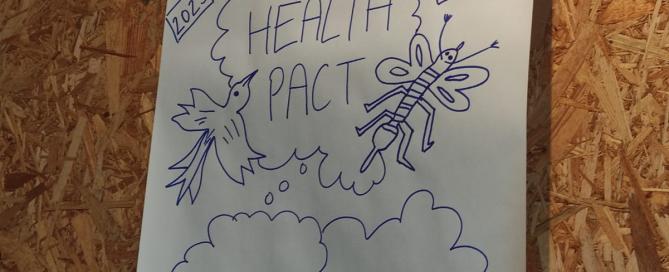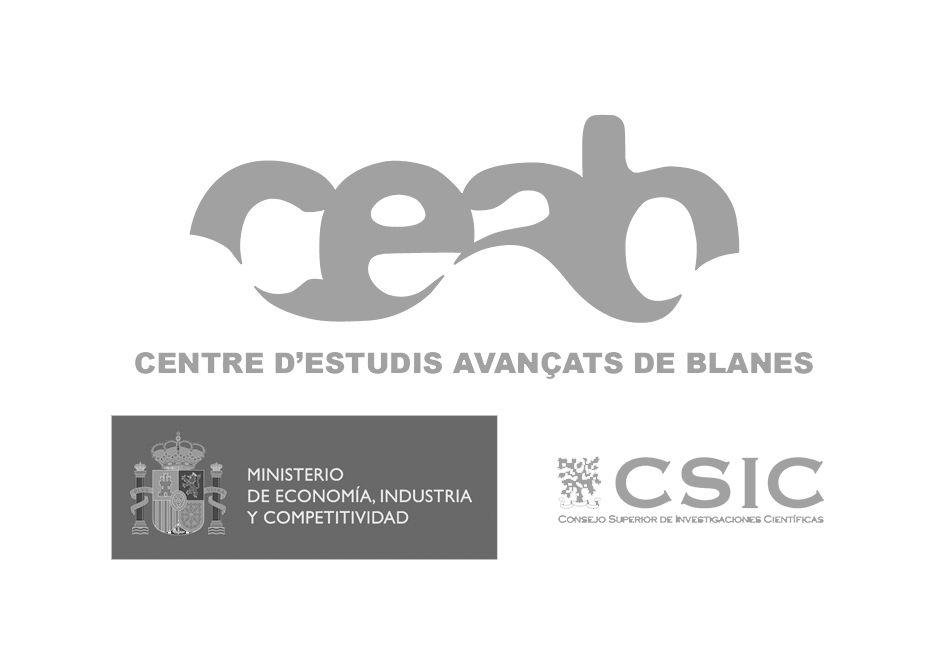Mosquito Alert at One Health Pact 2023 Annual Meeting
Last week, part of the Mosquito Alert team, as active members of the One Health Pact project, attended its annual meeting held in the Netherlands. This event brought together the Consortium of this Dutch initiative, aimed at preventing outbreaks of infectious diseases in both humans and animals. The distinctive feature of this project is its multidisciplinary approach, bringing together a European-wide research community from fields such as ecology, virology, medicine, pharmacy, biology, communication, outreach and citizen science.

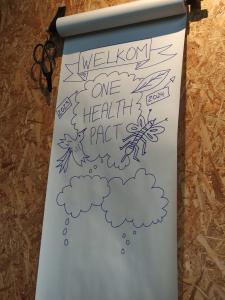
Photographs of the meeting space of the One Health Pact Consortium.
One Health Pact was born in 2019 with the aim of investigating the impact of climate change, water management, agricultural and livestock practices, as well as the importation of diseases through trade and tourism, on the likelihood of mosquito-borne virus outbreaks in the Netherlands. This region, with a high population density, a large number of farm animals in wetland environments, canals and intense international trade, is particularly vulnerable to disease outbreak.
With the aim of covering the entire Dutch territory, and as partners of the project, the use of Mosquito Alert has been enhanced and a joint educational programme has been developed, taking as a model the Mosquito Alert educational programme, which was initiated in 2015 thanks to the technical and research staff of CEAB-CSIC, Mosquito Alert and Xatrac.
This program is designed to implement citizen science in schools and institutes, with the aim of collecting data on the presence of mosquitoes and human-mosquito interaction. Since the start of the project, work has been ongoing with the OneHealthPact work package to establish a joint educational initiative.
Summary of the 2023 Annual Event
Since the start of the project in 2019, a Consortium-wide meeting has been organized annually. This event aims to update on the status of the project and discuss progress and challenges overcome in the field of human, animal and environmental health.
Marion Koopmans, Coordinator of the One Health PACT project and Head of the Erasmus MC ViroSciences Department, opened this year’s event, setting the scene for a day filled with the exchange of ideas and knowledge. Around 40 people attended the event, including research trainees and leaders of the different work packages of the project.
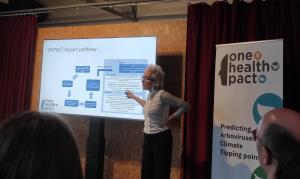

Right photo: Marion Koopmans, project coordinator. Left photo: meeting space.
Throughout the morning, the status of each of these work packages was presented. In the first one, a comparison between the Netherlands and Spain on the use of Mosquito Alert was presented by Ayat Abourashed, pre-doctoral researcher under the co-direction of Frederic Bartumeus, co-director of Mosquito Alert.
A total of 24 researchers shared their research work, offering a broad overview of the various areas covered by the project. Given the innovative nature of the project, these presentations also took place in a context of open debate to encourage argumentation and critical thinking.
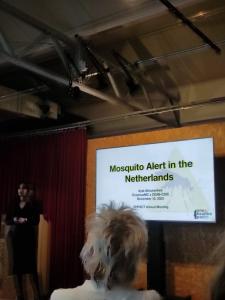
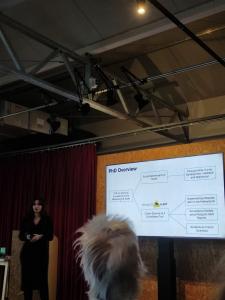
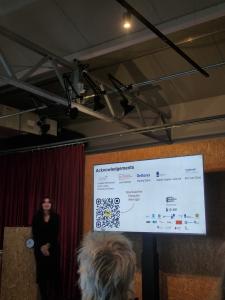
Photographs of Ayat Abourashed during her intervention.
Despite the difficulties caused by the COVID-19 pandemic and considering that the project is approaching its final stage, the Netherlands Organisation for Scientific Research (NWO) announced a neutral one-year extension, recognising the impact of the pandemic on the ongoing research.
School Planning 2023-2024 with Technasium
Before attending the annual meeting, Santi Escartin and Mar Jambou, responsible for the Mosquito Alert education project, met, as they do every year, with the staff of Technasium, an innovative and pioneering secondary school specializing in STEM areas in the Netherlands.
In 2019, with the start of the project, the model of the Mosquito Alert educational programme, active since 2015, was adopted to develop a joint and simultaneous educational programme in both countries, with the intention of promoting the use of citizen science in both territories. Since then, every year and taking advantage of these annual meetings, work is being done to plan next year’s educational programme, which begins in parallel with the start of the mosquito season in both countries. Also discussed was the co-organisation of the final Mosquito Alert event, a school competition showcasing students’ work, with a simultaneous link-up between the two countries, as has been done in the past.
For more information on the One Health Pact project, we invite you to visit their official website: https://www.onehealthpact.org/.

